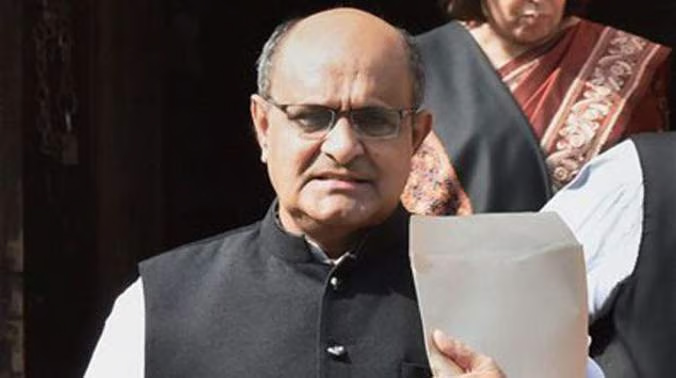Tyagi said that the party supports the implementation of ‘One nation, One poll’
 KRC TIMES National Bureau
KRC TIMES National Bureau

New Delhi : The Bharatiya Janata Party (BJP) is facing the pulls and pressures of running a coalition government even as the nuts and bolts of the NDA 3.0 are being worked out.
While offering unconditional support to the BJP-led NDA, one of its principal allies Janata Dal United JD(U) on Thursday demanded a review of the ‘Agnipath’ recruitments, a much-touted scheme by the Centre, under which youth are recruited for four years, However, there is a provision to retain 25% of them for 15 years.
“A section of voters has been upset over the Agniveer scheme. Our party wants those shortcomings to be discussed in detail and removed. On UCC, as the national president of the party, CM had written to the Law Commission chief. We are not against it but a solution should be found by talking to all stakeholders,” said JD(U)’s national spokesperson and former Rajya Sabha MP, K C Tyagi.
However, JD(U) is on the same page with the BJP on the implementation of ‘One nation, One poll’, Tyagi told The New Indian Express. One of the key promises made by the BJP in its election manifesto, ‘One nation, One poll’, has been vehemently opposed by several opposition parties saying it is against federalism.
Speaking to this paper, Tyagi said that the party supports the implementation of ‘One nation, One poll’ which proposes to hold simultaneous elections to the Lok Sabha, state assemblies and local bodies across the country.
The JD(U)’s support is significant for the coalition government as the legislation on ‘One Nation One Poll’ will need constitutional amendments in Parliament. Though the NDA crossed 290 seat mark, the BJP failed to touch the majority mark of 272 seats in the Lok Sabha, and its two allies, Chandrababu Naidu’s TDP in Andhra Pradesh and Nitish Kumar’s JD(U) in Bihar have emerged as the kingmakers to support the BJP to cobble up the coalition government. The JD(U) bagged 12 seats in the 2024 Lok Sabha elections.
The JD(U)’s endorsement for simultaneous polls should be seen in the context of the party’s call for early assembly elections along with Jharkhand late this year, instead of next year when it is due. In March this year, the high-level committee led by former President Ram Nath Kovind submitted its report to President Droupadi Murmu, recommending simultaneous elections for Lok Sabha and state assemblies and local bodies.
Once the law is enforced, state assemblies formed between 2024 and 2028 will have their tenure curtailed to necessitate synchronized elections in the 2029 Lok Sabha polls. For instance, states such as Kerala, West Bengal, and Tamil Nadu, which are due for elections in 2026, will have their terms cut short by two years if Lok Sabha polls are held in 2029. While Karnataka, Chhattisgarh, and Telangana which will go to polls in 2028 will lose four years, Punjab, Uttarakhand, and Uttar Pradesh due in 2027 will have to curtail their tenure.



